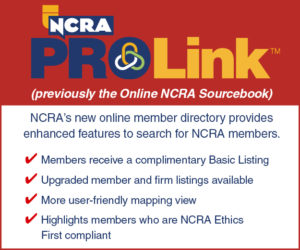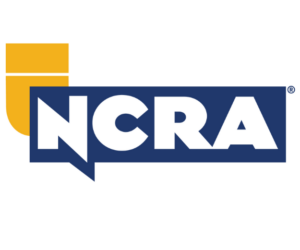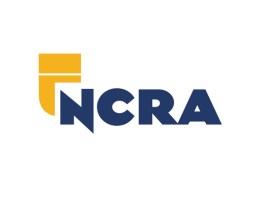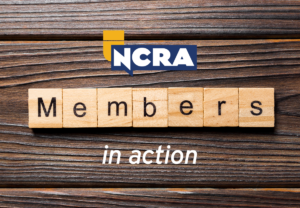 Matthew A. Dreger has been in the field since the late 1970s, beginning his career as a freelancer followed by 27 years as an official court reporter. Although he is now retired from the Third Judicial Circuit Court in Wayne County, Mich., he spent more than three decades in the court reporting profession. He is also a past president of the Michigan Association of Professional Court Reporters, where he held this important position from 2001-2002. Dreger, who makes Mount Clemens, Mich., his home, offers great insight and advice on how to be successful in this ever-changing profession.
Matthew A. Dreger has been in the field since the late 1970s, beginning his career as a freelancer followed by 27 years as an official court reporter. Although he is now retired from the Third Judicial Circuit Court in Wayne County, Mich., he spent more than three decades in the court reporting profession. He is also a past president of the Michigan Association of Professional Court Reporters, where he held this important position from 2001-2002. Dreger, who makes Mount Clemens, Mich., his home, offers great insight and advice on how to be successful in this ever-changing profession.
What traits have contributed to your success?
Drive. Desire for the better things in life and the wish to retire early in life. Being one of the two first computerized court reporters in the 36th District Court in Detroit in 1986 and one of the two realtime official court reporters in the Recorder’s/ Circuit Court in Detroit in the 1990s led to a very successful career path.
How has the court reporting business changed over the past years?
When I was a freelancer in the late 1970s, you dictated, you had several typists to keep up with the work load, and you were up all night. With the advent of realtime and the improvement in skills that comes from that style of writing, I no longer needed any assistance to keep up with my transcript load in one of the busiest courthouses in the United States. With realtime, the job became self-contained, no longer subject to other people’s scheduling problems, and, of course, expedited transcripts were no longer the work-intensive transcripts they once were.
What type of skill set is needed to be successful?
The skill set most necessary is the desire to advance yourself, your professional abilities, and job quality through software, writers, Bluetooth, e-trans, realtime, rough draft. Keeping your skills current makes you the most marketable of all reporters.
What role does technology play in being successful, and how does technology affect the court reporting business?
Technology took court reporting from a well-paying drudgery profession to a stateof- the-art profession that allows attorneys to have their products in a timeframe unmatched by any other type of reporting.
How will technology affect the future of the business, and what does a reporter need to do/focus on when that happens?
Technology has allowed our profession to develop into several new career paths, and reporters need to focus on the type of career path they are interested in. After your basic skills are developed, CART, realtime reporting as a freelancer or official, and/or closed captioning are focus areas that allow reporters to choose a profession that is more in sync with their lifestyles and family needs. Again, being a standout in the crowd with your skill set will give you a huge advantage.
How important is networking to building business and become successful?
Extremely.
Can you provide some examples of good networking that could help court reporters?
Knowing your legislators and keeping in contact with those who make the laws/statues, etc., that govern reporters is integral to our future. That contact must occur on a regular basis and not just when there is a crisis or change that will impact the court reporting profession.
What would be the best advice (or pieces of advice) you could give a student who is about to enter the field?
Students should do their best to pay attention to rules, regulations, and office procedures where they work. Do a good job. Turn out your transcripts in a timely fashion. Continue your certification process. Keep your software up to date, and enjoy the financial rewards that come from a profession that allows you flexibility.
What type of advice would you give to an established court reporter who is considering getting out of the field due to changes in the business?
What changes could be so drastic that you would want to leave this field? You have multiple career paths open to you. If you are a reporter with the skills and certifications looked for in our field, the only thing you need to do is understand changes and go with the flow. You do not want to find yourself in the same place as many auto companies because “that’s the way we have always done it!” We have gone from the pen writer to the manual machine writer, then on to the electric machine writer, to the computerized machine writer, and on to the realtime writer, the CART provider, and the closed caption writer. And through all those reinventions and new ways of doing steno writing, we have heard you will be replaced by tape recording, digital recording, etc. We have evolved. We are still here. We can still do it faster, better, and the most accurately. We are technology. Don’t leave the business; evolve with the business.
Where do you see the court reporting profession going in the future? And what do reporters need to do to prepare for that?
I see court reporting remaining a vibrant profession. I see court reporting career paths continuing to blossom and allowing stenographic writers choices. I see court reporting becoming a truly IT business profession with high pay and importance. To prepare for this future, NCRA, state associations, state certifications, continuing education, education, and relationship building with decision makers, stake holders, education of the members of the legal field, the television industry, and educational industry of what we can provide, what we do provide, and how we can assist them all in the furtherance of their own professions is of the highest priority. We must advocate. We must maintain our skills. We must have the skills we profess.
Do you want to nominate someone for the “Secrets of Success” series? Send your pick into the JCR’sWriter/Editor, Linda Smolkin, at lsmolkin@ncra.org.














